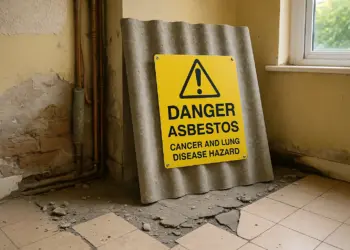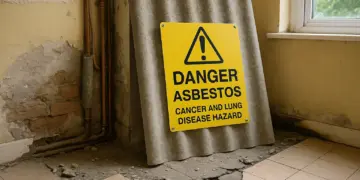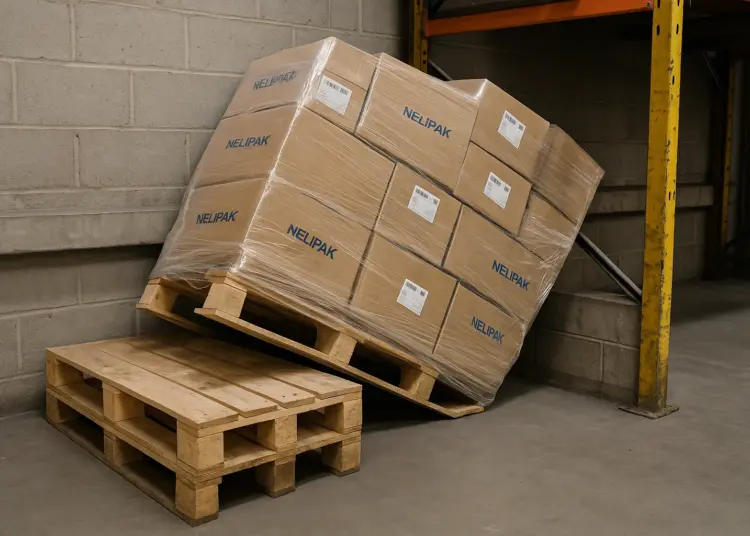Story Highlights
– Employee died after being trapped under heavy pallet.
– Company fined £600,000 for safety violations.
– Insufficient risk assessment identified in HSE investigation.
– Employees lacked training on pallet handling protocols.
– Tragic incident could have been prevented with proper measures.
Full Story
A manufacturing company based in Craven has been reprimanded with a hefty fine following the tragic death of an employee due to unsafe working conditions. Systagenix Wound Management Manufacturing Limited, operating under the trading name Scapa Healthcare Limited, faces a £600,000 penalty after a court determined that inadequate risk assessments and safety protocols contributed to the fatal accident.
The incident occurred on 21 September 2020 at the company’s facility located in Airedale Mills, Gargrave. Tony Snowden, a 56-year-old employee, sustained critical injuries when a substantial pallet collapsed. The ‘Nelipak’ pallet, weighing 592kg and stacked precariously atop another pallet, fell and trapped Mr Snowden between it and a wall ledge behind him. Colleagues were unable to lift the heavy pallet and had to unload it to free him; however, by the time it was removed, Mr Snowden had tragically succumbed to his injuries.
An investigation conducted by the Health and Safety Executive (HSE) revealed significant shortcomings in the company’s safety practices. It was concluded that Systagenix had failed to conduct a thorough risk assessment regarding the storage of goods, particularly focusing on factors such as load weight, height, and stability. The practice of stacking these three-legged pallets without appropriate racking systems was identified as a critical risk, particularly as they were often stored at floor level. The investigators determined that such vertical stacking was inherently unsafe and should have been avoided altogether.
The incident unfolded in the Resource Management Systems (RMS) area of the facility, where the pallets were stored. It was noted that while the company had instituted a “Procedure for Pallet Handling Policy,” not all staff in this section had received training on the relevant safety protocols. Investigators found no evidence that Mr Snowden had been briefed on these procedures prior to the incident.
In a hearing at Leeds Magistrates’ Court on 12 November 2025, Systagenix Wound Management Manufacturing Limited pleaded guilty to breaching section 2(1) of the Health and Safety at Work etc. Act 1974. The court heard a series of failures related to the company’s handling and storage of heavy pallets, which included:
1. Neglecting to perform a suitable and sufficient risk assessment regarding the storage of goods pallets in the bulk storage area, particularly overlooking the concerns of height, weight, and stability.
2. Failing to implement measures aimed at preventing the dangerous practice of double stacking and the subsequent risk of falling pallets.
3. Providing insufficient training for employees tasked with the storage of goods pallets in the RMS area.
4. Lacking effective monitoring and supervisory measures concerning the condition and storage of pallets.
As a consequence of these findings, the court imposed substantial fines and ordered the company to cover additional costs amounting to £15,000.
Following the court’s decision, Kirsty Storer-Cottrell, an HSE Inspector, expressed that the tragic events should have been preventable. She stated, “This tragic incident could have been easily prevented had a suitable and sufficient risk assessment taken place and the actions identified implemented. Training, monitoring and supervision along with risk control measures, including not double stacking these pallets, would have prevented a fatality happening.” The enforcement action by the HSE was led by Jonathan Bambro, an Enforcement Lawyer, and paralegal officer Rebecca Withell.
This case highlights the critical nature of maintaining workplace safety standards, particularly in environments involving heavy goods. The HSE continues to emphasise its commitment to regulating workplace health and safety in a bid to prevent such preventable accidents. The executive assists businesses in enhancing their safety standards through advice, inspection, and enforcement of legislation, which collectively aim to reduce incidents of work-related fatalities, injuries, and ill health.
Further resources on safe pallet handling and risk assessments can be accessed via the HSE’s official guidance documents, which underline the importance of safety protocols across various industrial settings.
For readers interested in understanding more about the legal frameworks involved, additional information about the Health and Safety at Work Act and related legislation can be found on the UK government’s legislation website. The HSE regularly publishes news and updated guidance intended for industries dealing with heavy equipment and hazardous materials, advocating for proactive measures that enhance worker safety.
This incident serves as a stark reminder of the imperative for companies to adhere strictly to health and safety regulations, ensuring comprehensive training and risk management strategies are in place to protect employees from harm in the workplace.























This is a tragic reminder that complacency around basic workplace safety can cost lives. Proper risk assessment and effective training on safe handling are essential and non negotiable. Employers must identify hazards, put robust controls in place and ensure staff are competent to follow safe procedures. The substantial fine reflects the seriousness of the failings and should prompt all organisations to review their risk management and training arrangements to prevent another avoidable death.